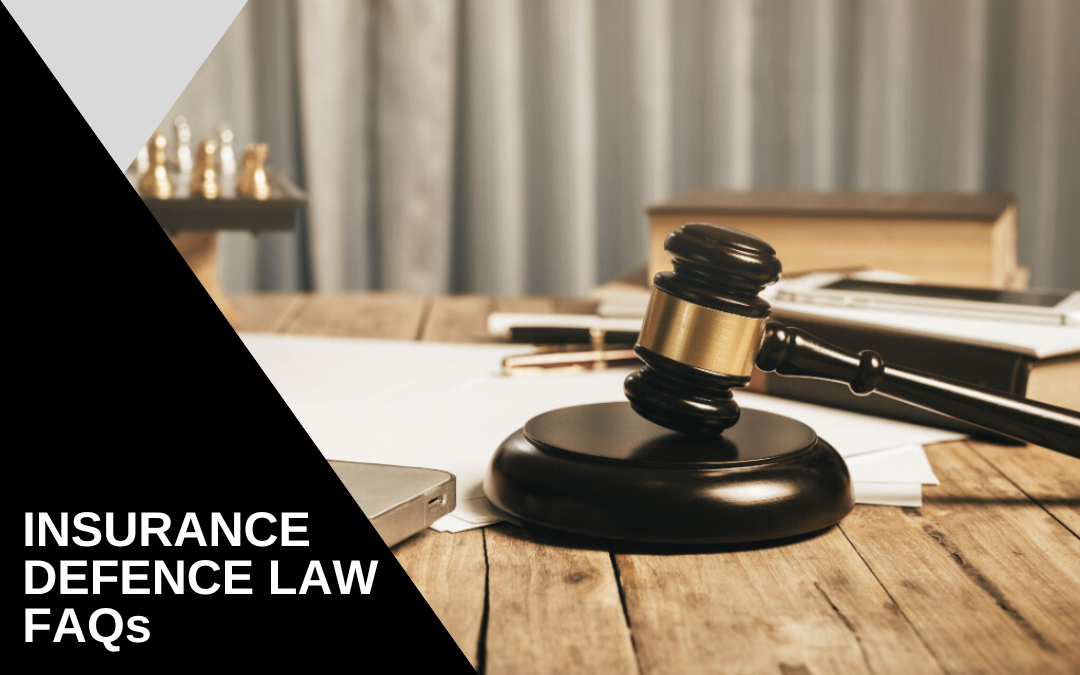
Frequently Asked Questions (FAQs) About Insurance Defence in Canada
What is Insurance Defence?
Insurance Defence involves representing insurance companies in legal disputes arising from claims against their insured parties. This could involve defending claims for property damage, personal injury, or other covered losses.
This article is for general informational purposes only and is not legal advice. Contact us today to discuss your specific situation.
When Should I Contact an Insurance Defence Lawyer?
If you’re an insurance company facing a potential claim, seeking legal counsel early is crucial. Don’t wait for a lawsuit to be filed. Consulting an experienced insurance defence lawyer allows for a proactive approach, enabling us to gather evidence, assess the claim’s validity, and formulate a robust defence strategy. This can save time, resources, and potentially lead to a more favourable outcome.
This article is for general informational purposes only and is not legal advice. Contact us today to discuss your specific situation.
What are the Typical Grounds for Denying an Insurance Claim?
Several factors can lead to an insurance claim being denied. Common reasons include:
- Non-disclosure: Failing to disclose material information during the application process, such as previous claims or known risks, can invalidate the policy.
- Breach of policy conditions: Not adhering to policy terms, like neglecting property maintenance or engaging in prohibited activities, can result in claim denial.
- Exclusions: Certain events or situations may be explicitly excluded from coverage under the specific policy, rendering the claim ineligible.
- Fraudulent claims: Intentionally misrepresenting facts or submitting false information to obtain benefits constitutes fraud and is a serious offence.
This article is for general informational purposes only and is not legal advice. Contact us today to discuss your specific situation.
What is the Discovery Process in Insurance Defence Cases?
Discovery is a pre-trial phase where both parties exchange information relevant to the case. This can involve producing documents, answering written questions, and participating in interviews or depositions. As your lawyer, I will guide you through this process, ensuring you comply with legal requirements while protecting your interests.
This article is for general informational purposes only and is not legal advice. Contact us today to discuss your specific situation.
What Are the Different Methods of Resolving Insurance Disputes?
Insurance disputes can be resolved through various methods, depending on the specific case and the preferences of both parties. These include:
- Negotiation: Direct communication and compromise attempts can often lead to a mutually agreeable settlement without the need for court proceedings.
- Mediation: A neutral third party facilitates discussions to help the parties reach a settlement.
- Arbitration: An independent arbitrator makes a binding decision based on the presented evidence.
- Litigation: Formal court proceedings are pursued when other resolution methods fail.
This article is for general informational purposes only and is not legal advice. Contact us today to discuss your specific situation.
What is the Importance of Evidence in Insurance Defence Cases?
Strong evidence is vital for a successful defence. This can include witness statements, police reports, photographs, videos, expert opinions, and relevant documentation. I will work diligently to gather and analyze evidence to support your case and effectively counter the claimant’s arguments.
This article is for general informational purposes only and is not legal advice. Contact us today to discuss your specific situation.
What Can I Expect from My Insurance Defence Lawyer?
You can expect an experienced and dedicated legal professional who will:
- Provide clear and concise legal advice tailored to your specific situation.
- Conduct a thorough investigation of the claim and gather necessary evidence.
- Develop a strong defence strategy based on applicable laws and precedents.
- Negotiate with the claimant or their lawyer to seek a favourable settlement.
- Represent you in court or other proceedings if necessary.
- Keep you informed and updated throughout the legal process.
This article is for general informational purposes only and is not legal advice. Contact us today to discuss your specific situation.
Can I Appeal a Denial of My Insurance Claim?
If your claim is denied, you may have the right to appeal the decision through an internal review process with your insurance provider or through the courts. I can advise you on the best course of action and guide you through the appeal process.
This article is for general informational purposes only and is not legal advice. Contact us today to discuss your specific situation.
What are the Costs Involved in Hiring an Insurance Defence Lawyer?
Legal fees for insurance defence vary depending on the complexity of the case and the amount of work involved. I will provide you with a clear fee estimate upfront and work to keep costs manageable while effectively achieving your desired outcome.
This article is for general informational purposes only and is not legal advice. Contact us today to discuss your specific situation.
How Can I Choose the Right Insurance Defence Lawyer?
When choosing an insurance defence lawyer, consider factors such as:
- Experience and expertise in insurance law and defending claims.
- Track record of success in similar cases.
- Communication style and responsiveness to your needs.
- Fees and billing structure.
- Personal rapport and trust.
By understanding your legal options and the role of an experienced insurance defence lawyer, you can navigate the complexities of insurance claims with confidence and protect your interests effectively.
This article is for general informational purposes only and is not legal advice. Contact us today to discuss your specific situation.
